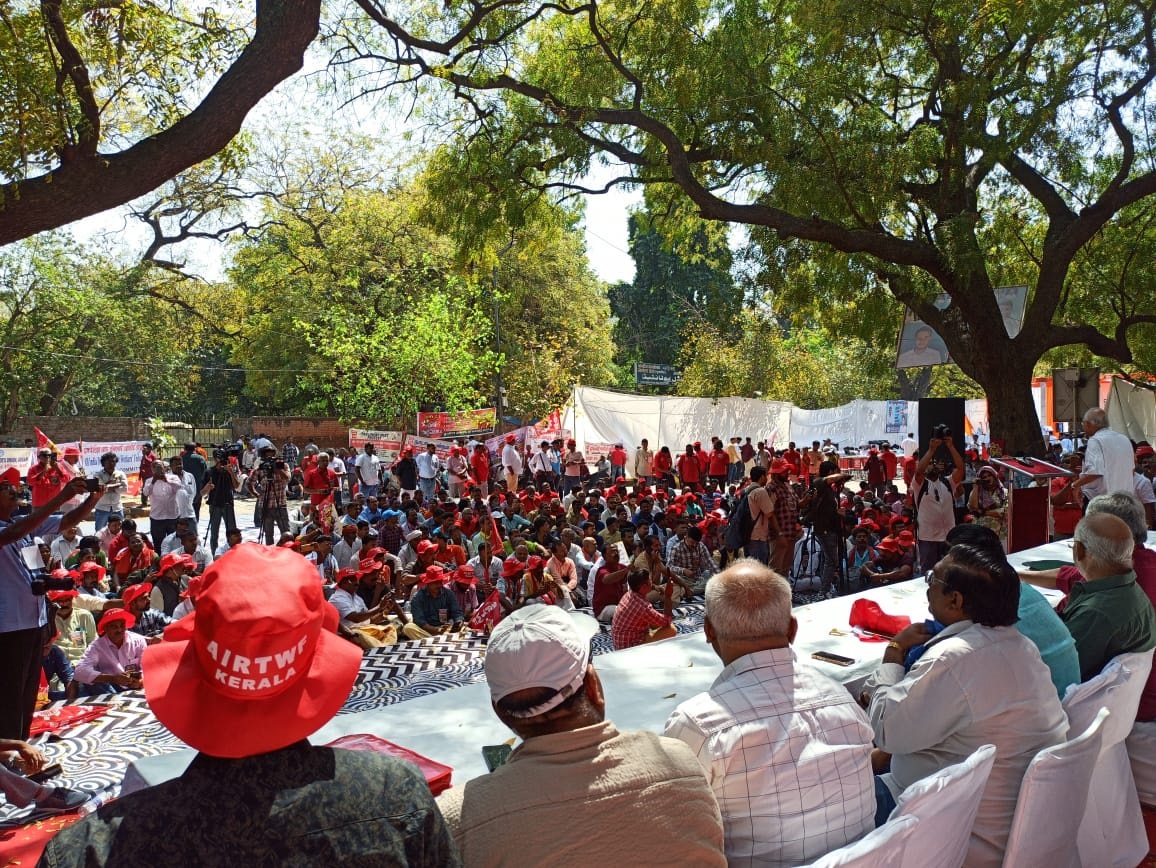
INDIA's road transport sector, a crucial pillar of the economy, is facing a severe crisis due to rising costs and policy changes, prompting nationwide protests. The All India Road Transport Workers Federation (AIRTWF) organised a March to Parliament on March 24, 2025, demanding urgent intervention from the central government to address issues threatening the livelihoods of millions of transport workers.
Road transport plays a pivotal role in India, carrying 80 per cent of passenger traffic and 62 per cent of freight, contributing 4.1 per cent to the GDP, and directly employing 10 crore workers – making it the second-largest employment-generating sector after agriculture. However, increasing fuel prices, insurance premiums, and toll charges have placed immense pressure on small transport operators and workers.
RISING COSTS
Diesel Prices: When the NDA government took power in 2014, crude oil prices stood at $109 per barrel, and diesel prices ranged between Rs 55-60 per litre. Despite crude oil prices falling to $70 per barrel today, diesel prices have soared to Rs 90-100 per litre, exacerbating financial strain on transport operators.
Third-Party Insurance Premiums: Despite a decline in road accidents over the last decade (except for one year), insurance premiums have doubled since 2014, adding to operational costs.
Toll Taxes: The government collects a cess of Rs 14 per litre of fuel for road development while also imposing annual toll hikes of 10 per cent, further burdening transporters.
POLICY CHANGES FAVOURING CORPORATIONS?
The Motor Vehicles Amendment Act 2019 introduced major changes, including Section 93 on aggregators, facilitating corporate entry into the transport sector. The Vehicle Scrappage Policy, allegedly aimed at reducing pollution, is viewed as a move to eliminate small transport owners, making way for corporate dominance. Increased penalties and stringent regulations have further marginalised independent vehicle owners.
Over 90 per cent of road transport workers operate in the unorganised sector, lacking legal protection for working hours, minimum wages, or social security. Despite persistent demands, no significant reforms have been introduced to improve their conditions.
On December 18, 2024, AIRTWF representatives met Transport Minister Nitin Gadkari to discuss these pressing issues but received no positive response. In retaliation, transport workers and unions have mobilised for a massive protest in Delhi, demanding policy changes to protect their livelihoods.
As problems rise, the road transport sector awaits the government's response. With millions of livelihoods at stake, today’s March to Parliament marks a crucial moment in the fight for workers' rights and the future of India's transport industry.
DEMANDS:
· Protect the road transport sector and the livelihoods of workers.
· Reduce and rationalise diesel prices, insurance premiums, and toll charges.
· Enact a Social Security Act for unorganised road transport workers, including self-employed individuals.
· Withdraw Section 106(1) & (2) of BNS by amending BNS-2023.
· Develop and operate a government-run app-based platform as an alternative to Uber, Ola, Rapido, and Porter. This will protect drivers and consumers from corporate exploitation while generating significant revenue for the Government of India.
· Strengthen and expand State Transport Undertakings (STUs):
ü Restore capital contributions to STUs as per the RTC Act, 1950.
ü Convert outstanding debts of all STUs into government equity.
ü Allocate procurement, maintenance, and operation of electric buses to STUs.
ü Extend subsidies and viability gap funding to STUs.
· Scrap the Labour Codes.
· Make the Vehicle Scrappage Policy non-mandatory:
· Testing should be conducted under the Transport Department, with ASRTU & CIRT involved.
· If a vehicle is scrapped, one-third of the cost should be subsidised by the Government of India and one-third by the vehicle manufacturer.
· Amend the Motor Vehicles Amendment Act, 2019, to protect the sector and small vehicle owners.
· Facilitate loans for small vehicle owners through nationalised financial institutions to free them from private finance companies.
· Amend PF and ESI Acts to ensure their applicability to all unorganised road transport workers, removing the minimum worker threshold.
· Strictly enforce the Motor Transport Workers Act (MTW Act) regarding duty hours, weekly rest days, and other worker protections.
· Reinstate the double-driver rule for national permit vehicles.
· Establish roadside amenities on all national highways, ensuring essential facilities for drivers.
· Implement segregation on all national highways to reduce accidents.
×
×


